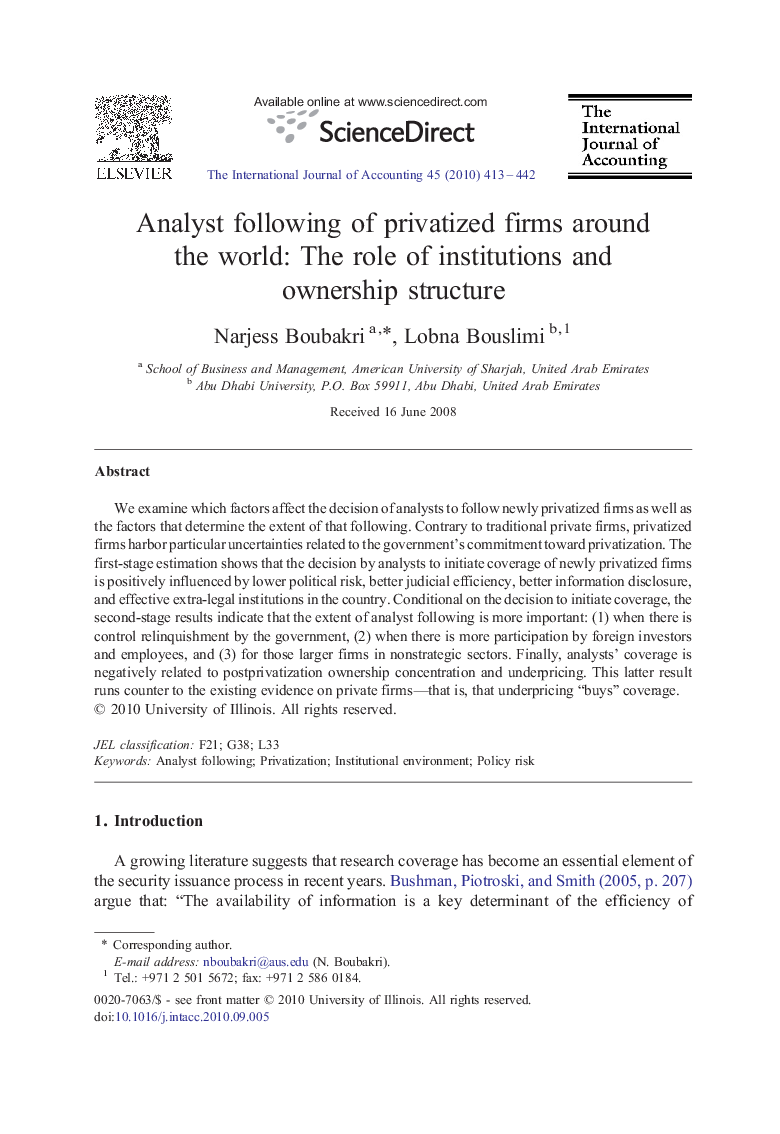| Article ID | Journal | Published Year | Pages | File Type |
|---|---|---|---|---|
| 1005152 | The International Journal of Accounting | 2010 | 30 Pages |
We examine which factors affect the decision of analysts to follow newly privatized firms as well as the factors that determine the extent of that following. Contrary to traditional private firms, privatized firms harbor particular uncertainties related to the government's commitment toward privatization. The first-stage estimation shows that the decision by analysts to initiate coverage of newly privatized firms is positively influenced by lower political risk, better judicial efficiency, better information disclosure, and effective extra-legal institutions in the country. Conditional on the decision to initiate coverage, the second-stage results indicate that the extent of analyst following is more important: (1) when there is control relinquishment by the government, (2) when there is more participation by foreign investors and employees, and (3) for those larger firms in nonstrategic sectors. Finally, analysts' coverage is negatively related to postprivatization ownership concentration and underpricing. This latter result runs counter to the existing evidence on private firms—that is, that underpricing “buys” coverage.
